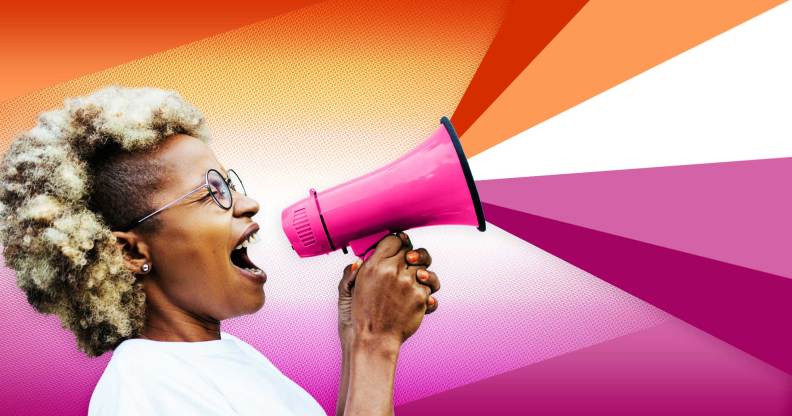I claim ‘the L word’ because it represents freedom for women – and two fingers up to the patriarchy

The word lesbian can feel loaded. (Getty)
The word lesbian can be a fraught battleground – but for Alicia Cordell, it’s a f**k you to the patriarchy, a symbol of solidarity between queer women.
I like the word lesbian, both to say and to be – but when I came out (a decade ago in a Wetherspoons) I didn’t use it.
I’d been hanging out with the ‘town lesbian’, but the word felt like too much of a commitment for a 17-year old, so I came out as ‘60/40’ and left the ratio questions unanswered.
Beyond a reluctance to define oneself as anything, the desire to be a constantly changing enigma and the idea that you don’t have to come out as straight, there can also be an ickiness to discussing your sex life with strangers, with family.
This is strongly felt by Bee Pahnke, who prefers the more overarching term queer.
“In a world that is so strongly defined by the male gaze, I feel like my sexuality is often reduced to a sexualised idea,” they say. To Pahnke, “queer’ is a word that feels “representative of a bigger entity, rather than honed in on my sex life”.
Others find power in the world lesbian.
“It can make straight people recoil a little bit. Like they suddenly start thinking about the kind of sex you have, but the more people worry about it, the more I think it’s important to use the word,” says Lilly Alter.
Historically, it’s been considered a binary word – lesbian = girl who likes girl – and this can translate into a continuation of patriarchal values, even between two women.
To me, “lesbian” represents a freedom to be anything women would like to be. It’s a f**k you to the patriarchy – a non-definable entity.
Rachel Corbman agrees, arguing the word “doesn’t hold any singular definition for us to follow. Rather, it affirms the openness and malleability of ‘lesbian’ as a cultural identity and political label”.
For India Smith, “labels are important for community, no one is a lesbian alone, we all have our own different intersectionalities”.
India continues: “I didn’t struggle much with accepting my sexuality, but gender has been harder to navigate. I felt as though I needed to decide whether I was masc or femme to be desirable and it wasn’t until I heard the term ‘non-binary’ that I felt seen.”
Ultimately, the beauty of labels is that they’re a shorthand, an instant click, a shared eye contact of understanding between members of a community.
That’s how it feels when you find people who understand you, who walk through life in the same way you do, or who maybe if they don’t tread the exact same path, will walk through it with you
In this context, the L word is magic.
How did this story make you feel?

